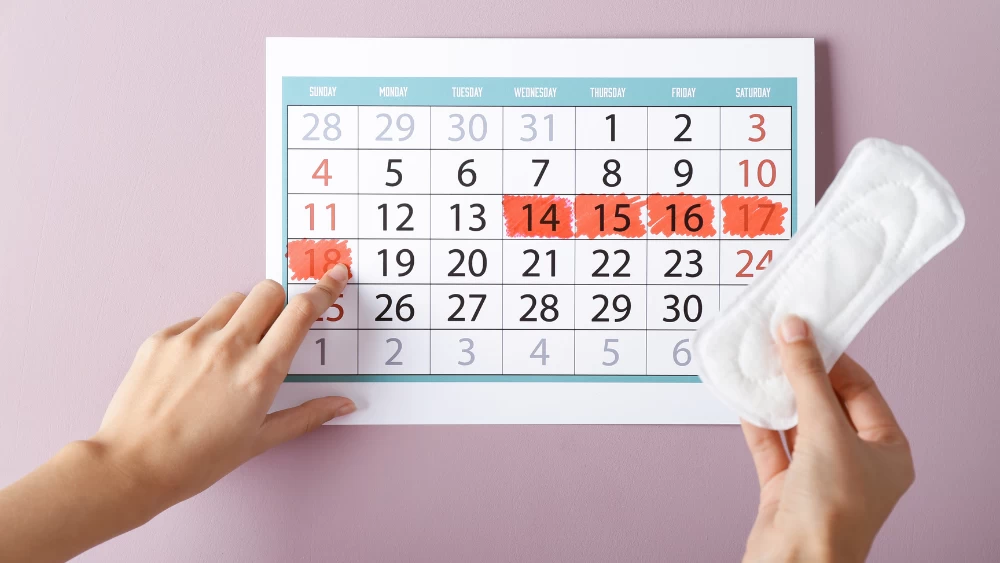
- 2nd February 2023
Table of Contents
- Causes of Shorter Periods
- Hormonal Imbalance Causing Shorter Periods
- Stress and Anxiety Causing Shorter Period
- Environmental Factors Resulting in Shorter Periods
- Medications and Illness Causing Shorter Periods
- Exercise Habits To Overcome Shorter Periods
- Diet to Overcome Shorter Periods
- Conclusion: Impact on Health
Causes of Shorter Periods
Periods in women are often seen as a sign of reproductive health. However, there can be many contributing factors that lead to shorter periods. These causes can range from lifestyle changes such as diet and exercise to more extreme medical conditions like endometriosis. Shorter menstrual cycles may indicate an underlying issue and should never be ignored. There are several possible causes for women experiencing shorter menstrual cycles than normal. Poor nutrition, including a lack of vitamins or minerals, can affect the length of a period significantly. Stress is also known to play a large role in both delaying or shortening menstrual cycles; hormones released during stress can cause ovulation to be delayed or skipped altogether resulting in shorter periods. Additionally, rapid weight loss can cause hormonal fluctuations which could lead to frequent but short-lived bleeding episodes instead of regular periods.
Also periods in women are becoming shorter and less painful, according to recent research. But what contributes to this significant shift? One of the leading factors is an overall decrease in bleeding time during periods. This can be attributed to many causes, such as changes in hormone levels, lifestyle choices like diet and exercise, and even genetics. For some women, the amount of menstrual flow has decreased over time due to natural hormonal shifts or lifestyle modifications—resulting in a shorter period that doesn't require as much bleeding. Additionally, certain medications may cause menstruation-related hormones to decrease more quickly than usual. This could lead to a reduction in the amount of blood loss during menstruation and result in a shorter cycle overall. In other cases, women may experience genetic variations that affect their menstrual cycle length or regularity.
Hormonal Imbalance Causing Shorter Periods
Hormonal imbalance is an issue that affects many women and can lead to a variety of problems, including changes in the length of menstruation. Recent research shows that more and more women are experiencing shorter periods, with average menstrual cycles lasting only 24 days instead of the usual 28. This disruption can have negative consequences on female health, so it’s important to understand why this change is happening. For some women, shorter periods may be caused by hormonal imbalances due to age or lifestyle factors such as stress and poor diet. Hormone levels play a key role in regulating the menstrual cycle, and when there's a discrepancy between estrogen and progesterone production it can cause irregular bleeding patterns or even lead to complete cessation of menstruation.
Stress and Anxiety Causing Shorter Period
Stress and anxiety can have a significant effect on the body’s natural functions, including the menstrual cycle. Recent research has suggested that periods in women are becoming shorter due to rising levels of stress and anxiety. This is an issue that deserves consideration, as it could potentially lead to various other health problems for women down the road. The effects of stress and anxiety on the female reproductive system have been noted as far back as ancient Greek writings, yet modern society has seen a dramatic rise in its incidence. For example, one study found that nearly two out of every three women reported experiencing some degree of stress or anxiety throughout their cycle. This emotional strain can cause a number of physiological changes such as irregular menstrual cycles and even early menopause in some cases.
Environmental Factors Resulting in Shorter Periods
Periods in women are becoming shorter, and this phenomenon is being observed across the world. According to the best dietician in Delhi, Dr. Pankaj Kumar, many environmental factors are leading to this change in menstrual cycles, and it’s important to understand why they’re happening so we can find ways to stop them. An increased exposure to pollutants such as plastics, endocrine disruptors and pesticides has been linked with shorter periods. These substances have the ability to interfere with the natural hormones of the body which can lead to an earlier onset of menstruation or a shortened cycle length. Studies have also shown that women who live near hazardous waste sites often experience changes in their menstrual cycle due to exposure from these chemicals. Climate change is also playing a role in decreasing period lengths for women around the world.
Medications and Illness Causing Shorter Periods
In a conversation doctor dietician Pankaj Kumar mentioned that medications and Illness can play a major role in women's menstrual cycles. Many women are experiencing shorter periods due to medical conditions, lifestyle choices, or treatments. As the number of chronic illnesses that require regular medications increases, so too does the probability of having a period that is shorter than the traditional 28-day cycle. For starters, some medications used for treating mental health can alter hormones which can cause abnormal bleeding patterns in women and lead to shortened or missed periods. He mentioned that Hormone replacement therapy (HRT) is also known to affect menstrual cycles by manipulating hormone levels in order to reduce symptoms of menopause or other hormonal imbalances. Additionally, some autoimmune diseases such as Lupus have been linked to changes in the length of time between periods due to their effect on hormones.
Exercise Habits To Overcome Shorter Periods
Good diet and exercise habits can have a significant impact on the menstrual cycle of women. In a conversation the best dietician in India Dr. Pankaj Kumar told that healthy diet that is rich in essential nutrients, along with regular physical activity, can help to regulate hormones in the body and maintain an ideal weight. Women who are overweight or obese may experience shorter periods due to higher levels of stress hormones in their bodies. This could also lead to irregular menstrual cycles or even amenorrhea (absence of menstruation). Exercise has been found to be beneficial for balancing hormones and improving blood circulation which helps regulate the reproductive system. Additionally, he recommended that eating the right kind of foods such as lean proteins, high-fiber carbohydrates, fruits and vegetables will provide your body with all the necessary vitamins and minerals it needs for optimum health. Drinking plenty of water throughout the day helps flush out toxins from your body as well as keep you hydrated.
Diet to Overcome Shorter Periods

According to best dietician in Delhi, Dr. Pankaj kumar, periods are a normal part of life for women, but they can be unpleasant and uncomfortable. Fortunately, there are some diet changes that can help reduce period problems. Eating a balanced diet with plenty of calcium, vitamin D and magnesium can help regulate hormones and improve the overall health of your body during menstruation. Additionally, avoiding processed foods, sugar, saturated fats and caffeine may reduce symptoms such as cramps or fatigue. Therefore, it is important to understand how our diets impact our menstrual cycles so we can make necessary changes to overcome period problems. He also mentioned that it is also essential to stay hydrated during your cycle by drinking plenty of water each day. This will help ease bloating and other discomforts caused by hormonal imbalances. Furthermore, you should get adequate rest so that your body has time to recover from the hormonal fluctuations associated with periods in women getting shorter?
Conclusion: Impact on Health
Periods in women are becoming shorter and the impact on overall health is concerning. Research has shown that women with short cycles appear to have higher risks of developing chronic illnesses such as endometriosis, polycystic ovary syndrome (PCOS) and pelvic inflammatory disease (PID). Additionally, their chances of infertility also increase. It is clear that a woman’s menstrual cycle can be a critical indicator for her overall health. Shortened cycles could provide insight into underlying issues such as hormone imbalance or other reproductive conditions. Experts suggest being mindful of your body and regularly monitoring any changes in period lengths or irregularities. By doing so, individuals can detect potential health problems early on and potentially prevent them from worsening over time.














